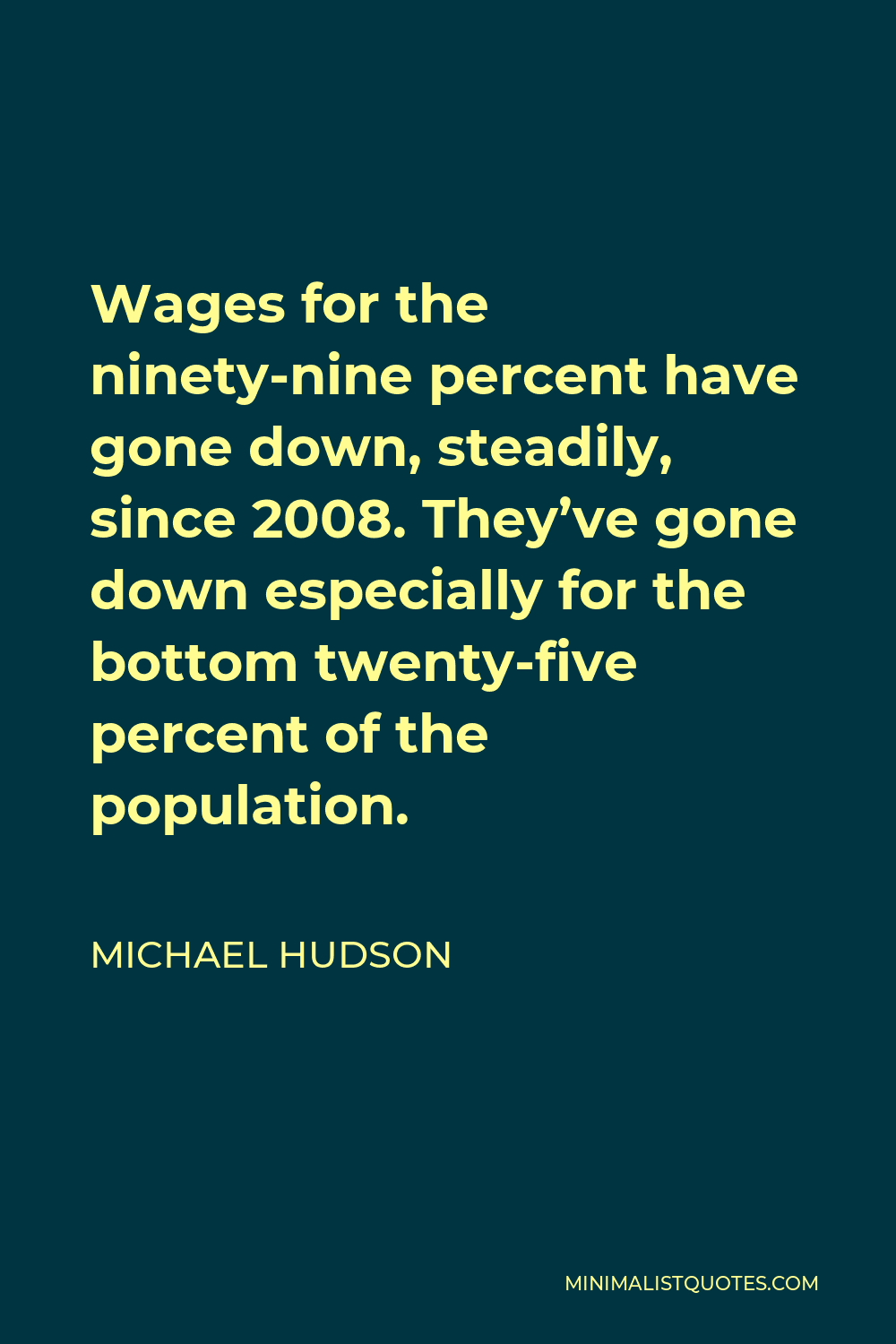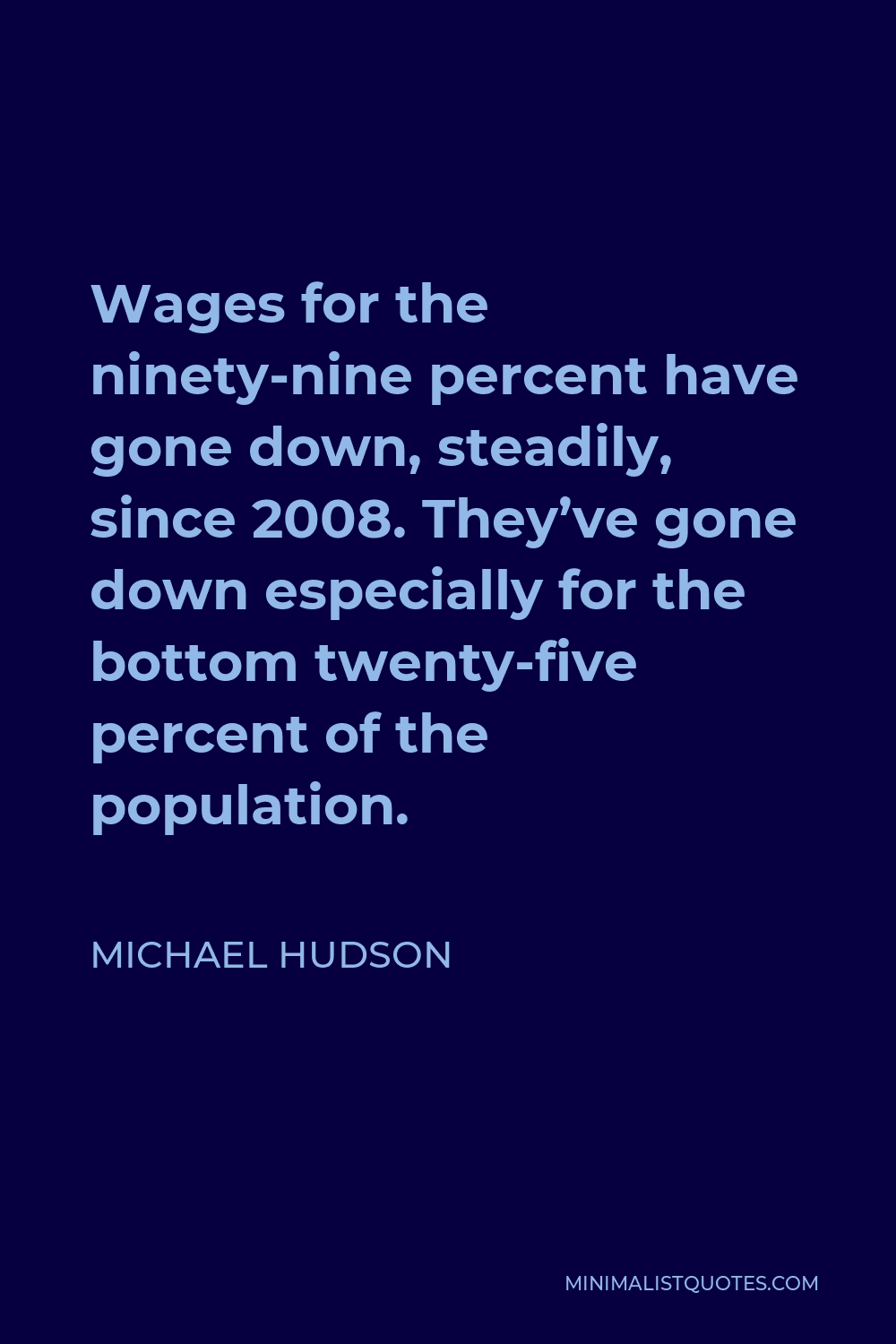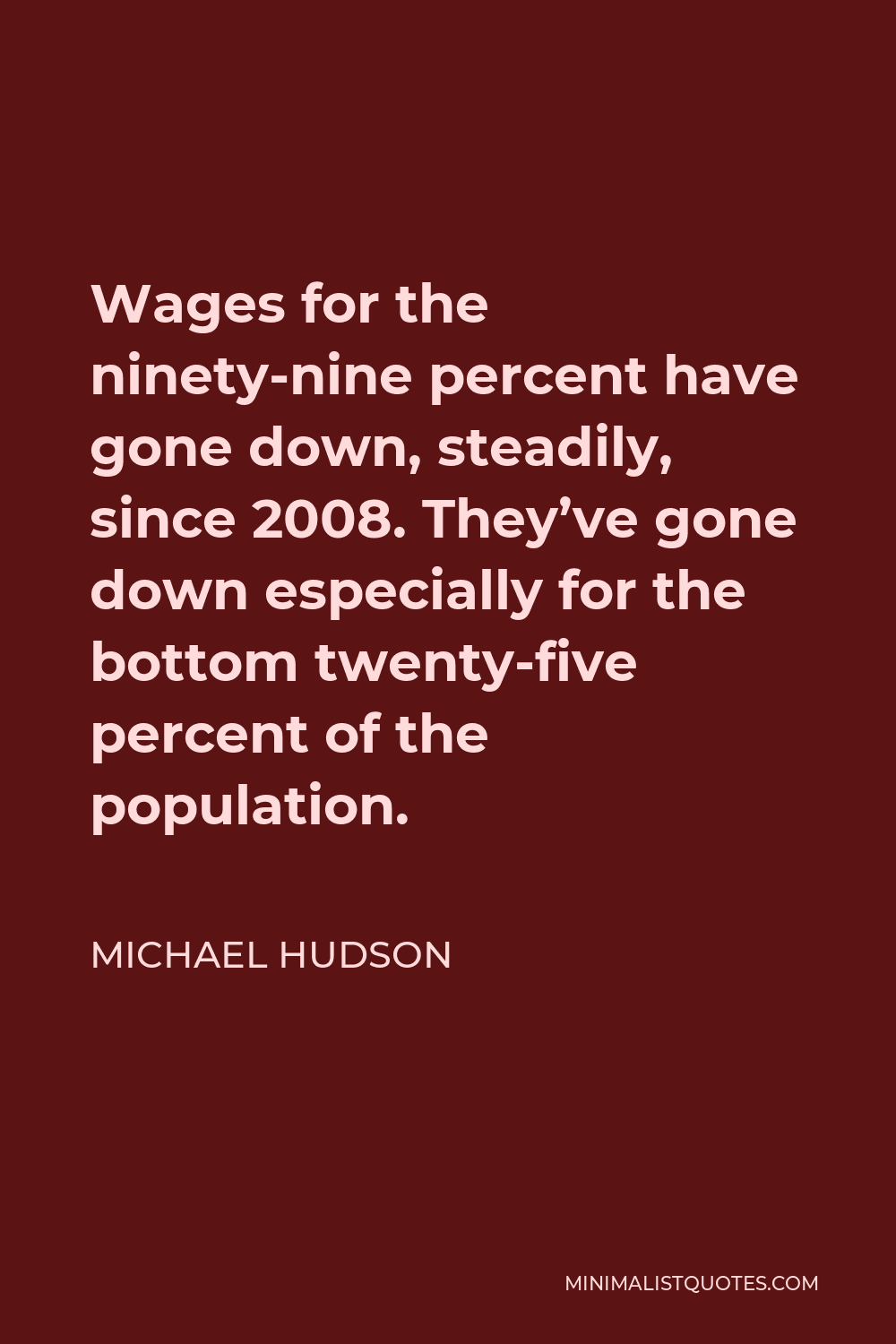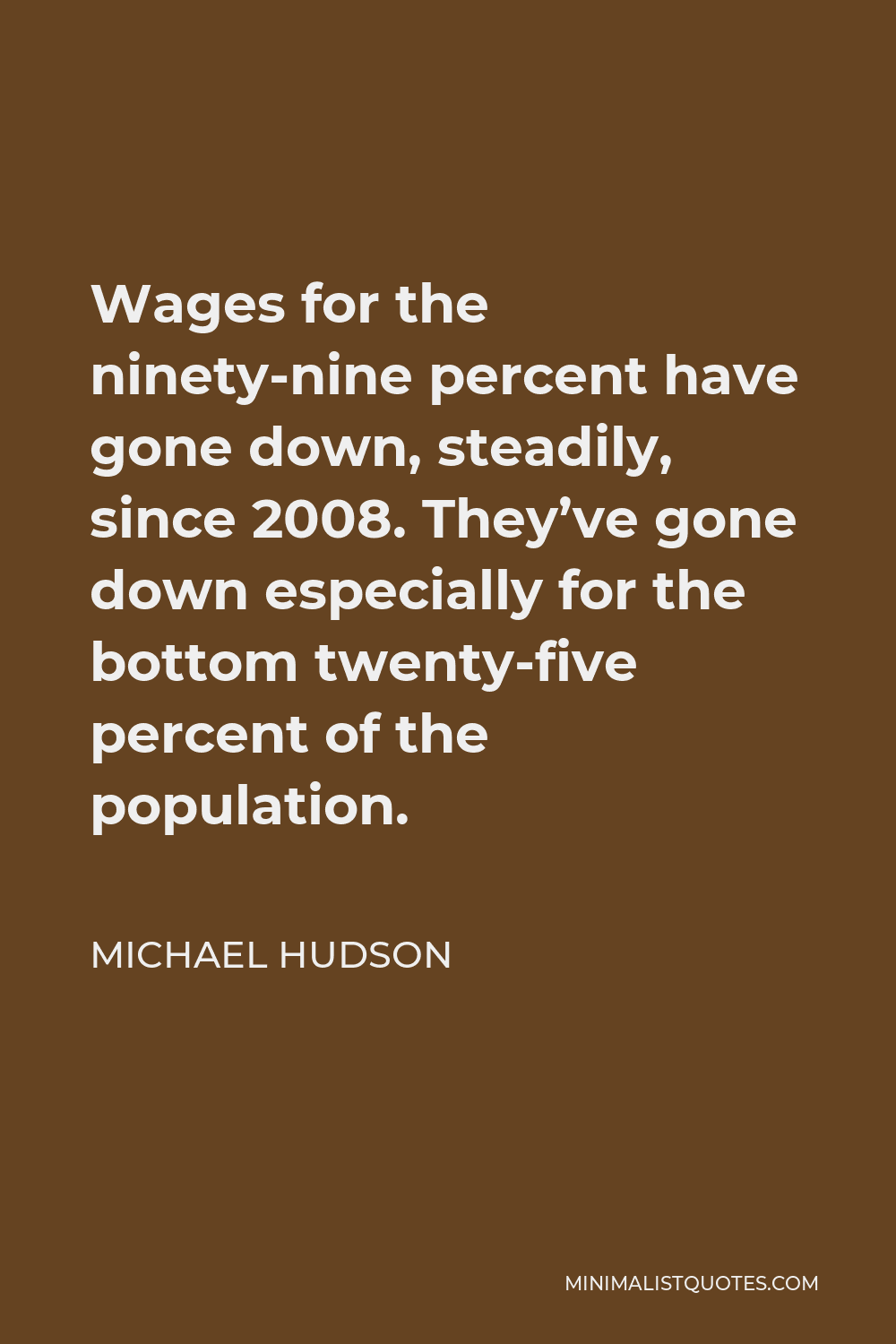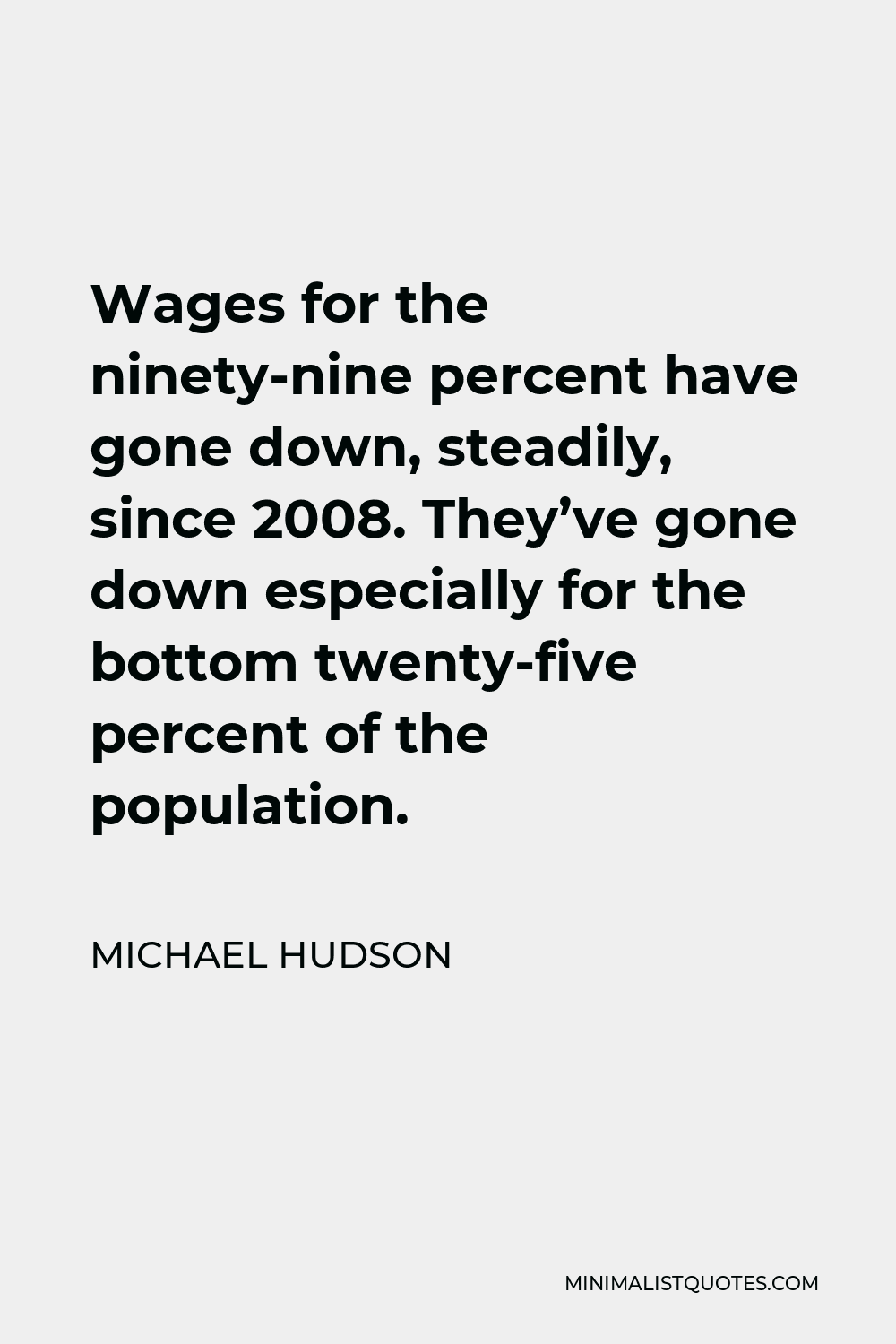When we say “people worry” about inflation, it’s mainly bondholders that worry. The labor force benefitted from the inflation of the ’50s, ’60s and ’70s.
MICHAEL HUDSONWages for the ninety-nine percent have gone down, steadily, since 2008. They’ve gone down especially for the bottom twenty-five percent of the population.
More Michael Hudson Quotes
-






-





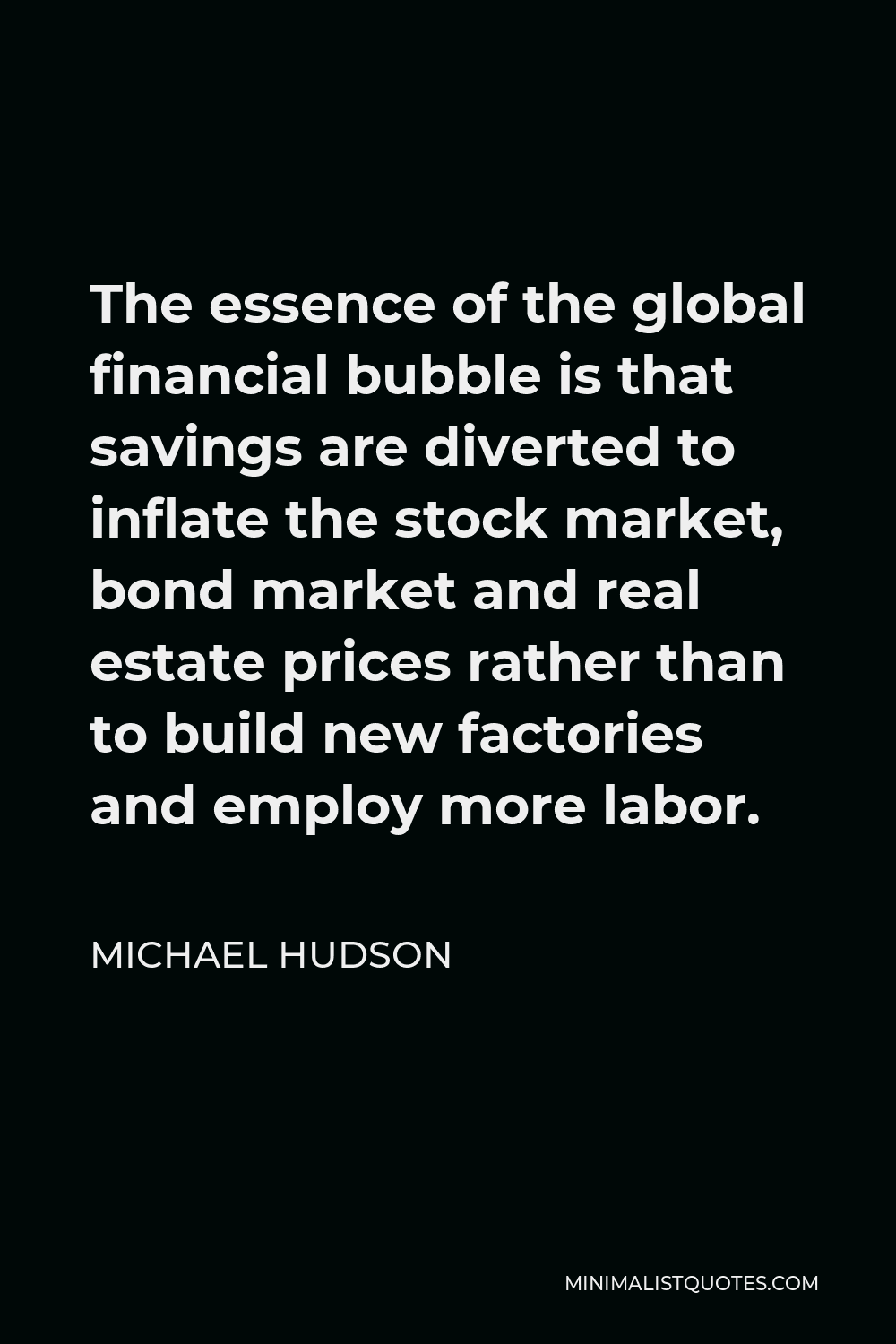
The essence of the global financial bubble is that savings are diverted to inflate the stock market, bond market and real estate prices rather than to build new factories and employ more labor.
MICHAEL HUDSON -





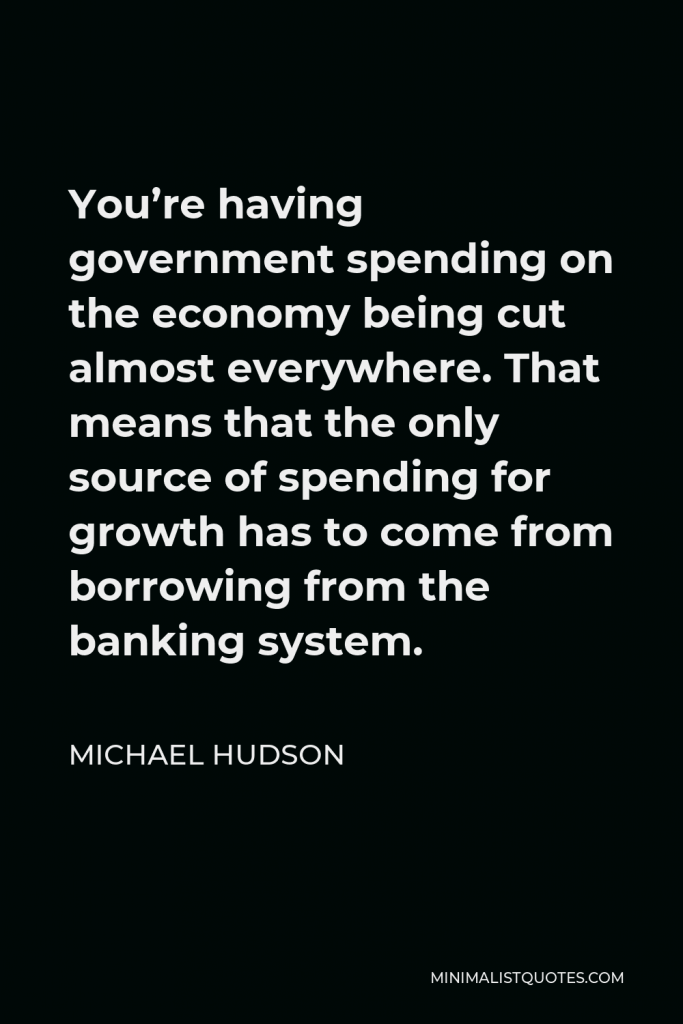

You’re having government spending on the economy being cut almost everywhere. That means that the only source of spending for growth has to come from borrowing from the banking system.
MICHAEL HUDSON -





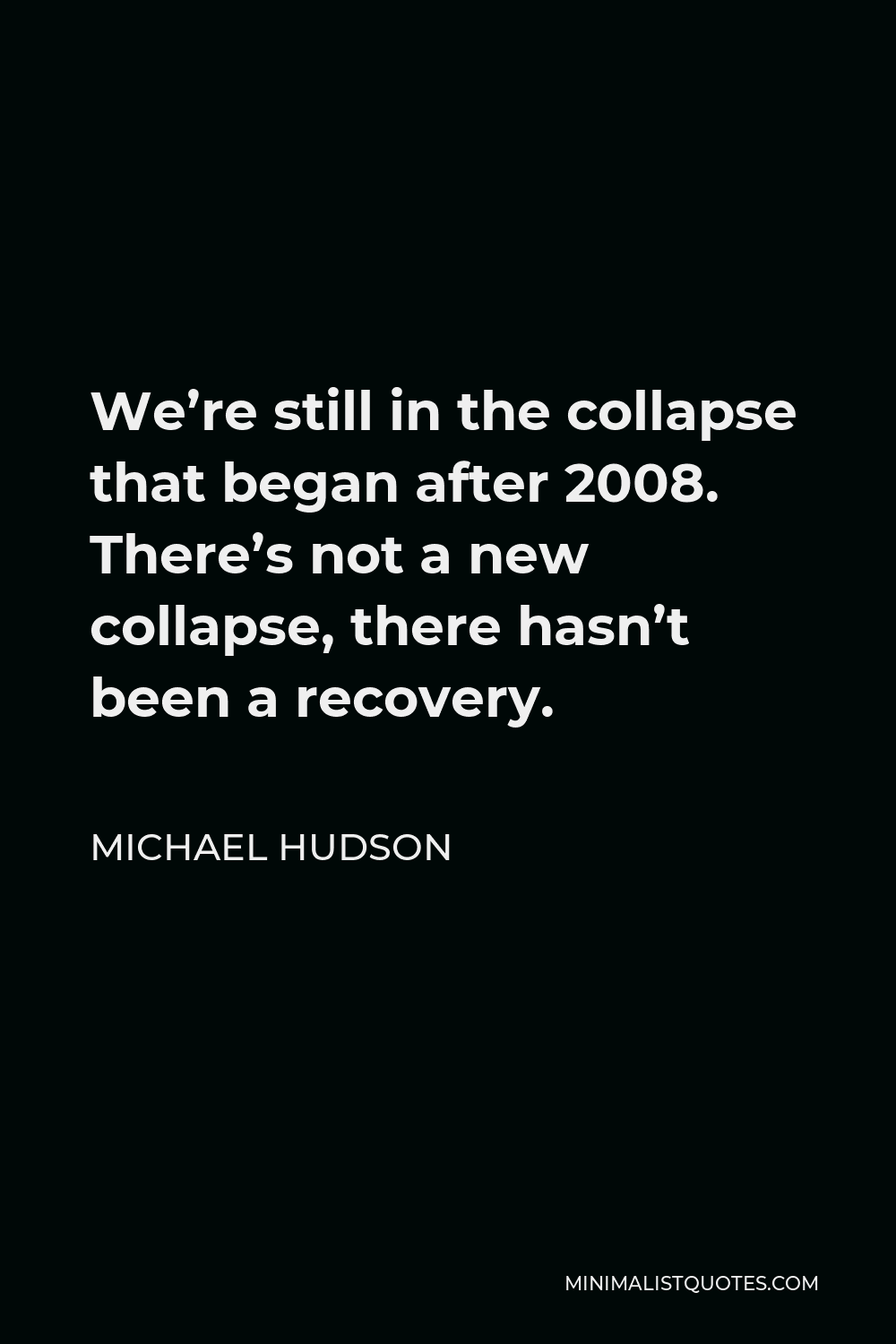
We’re still in the collapse that began after 2008. There’s not a new collapse, there hasn’t been a recovery.
MICHAEL HUDSON -





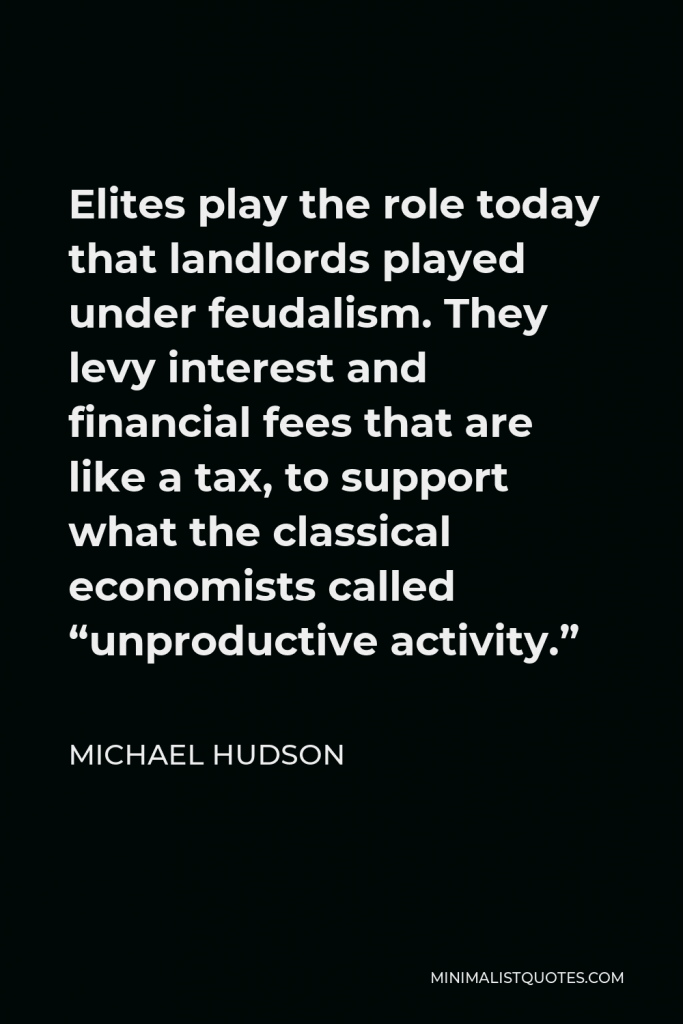

Elites play the role today that landlords played under feudalism. They levy interest and financial fees that are like a tax, to support what the classical economists called “unproductive activity.”
MICHAEL HUDSON -






There are two definitions of deflation. Most people think of it simply as prices going down. But debt deflation is what happens when people have to spend more and more of their income to carry the debts that they’ve run up – to pay their mortgage debt, to pay the credit card debt, to pay student loans.
MICHAEL HUDSON -





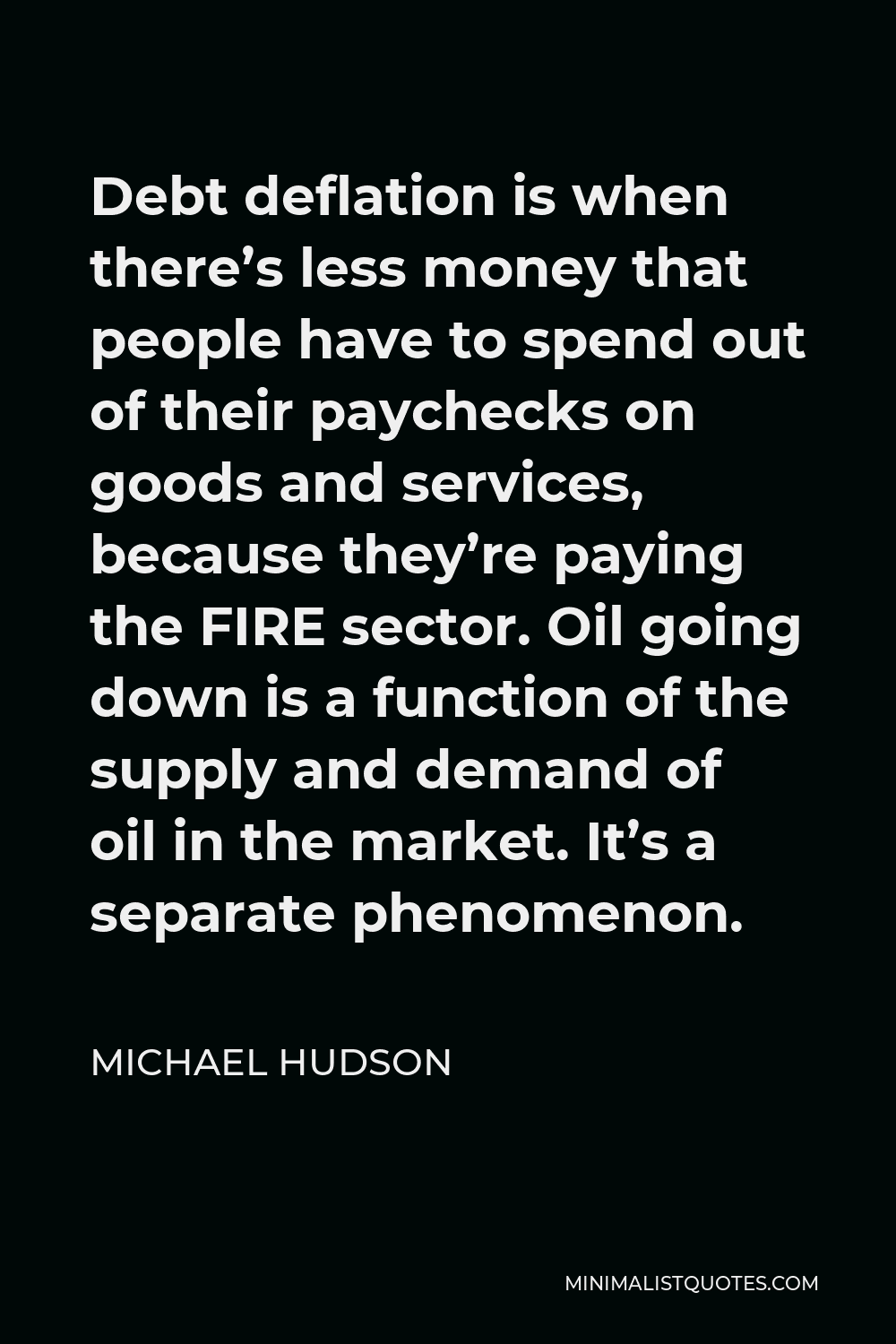
Debt deflation is when there’s less money that people have to spend out of their paychecks on goods and services, because they’re paying the FIRE sector. Oil going down is a function of the supply and demand of oil in the market. It’s a separate phenomenon.
MICHAEL HUDSON -





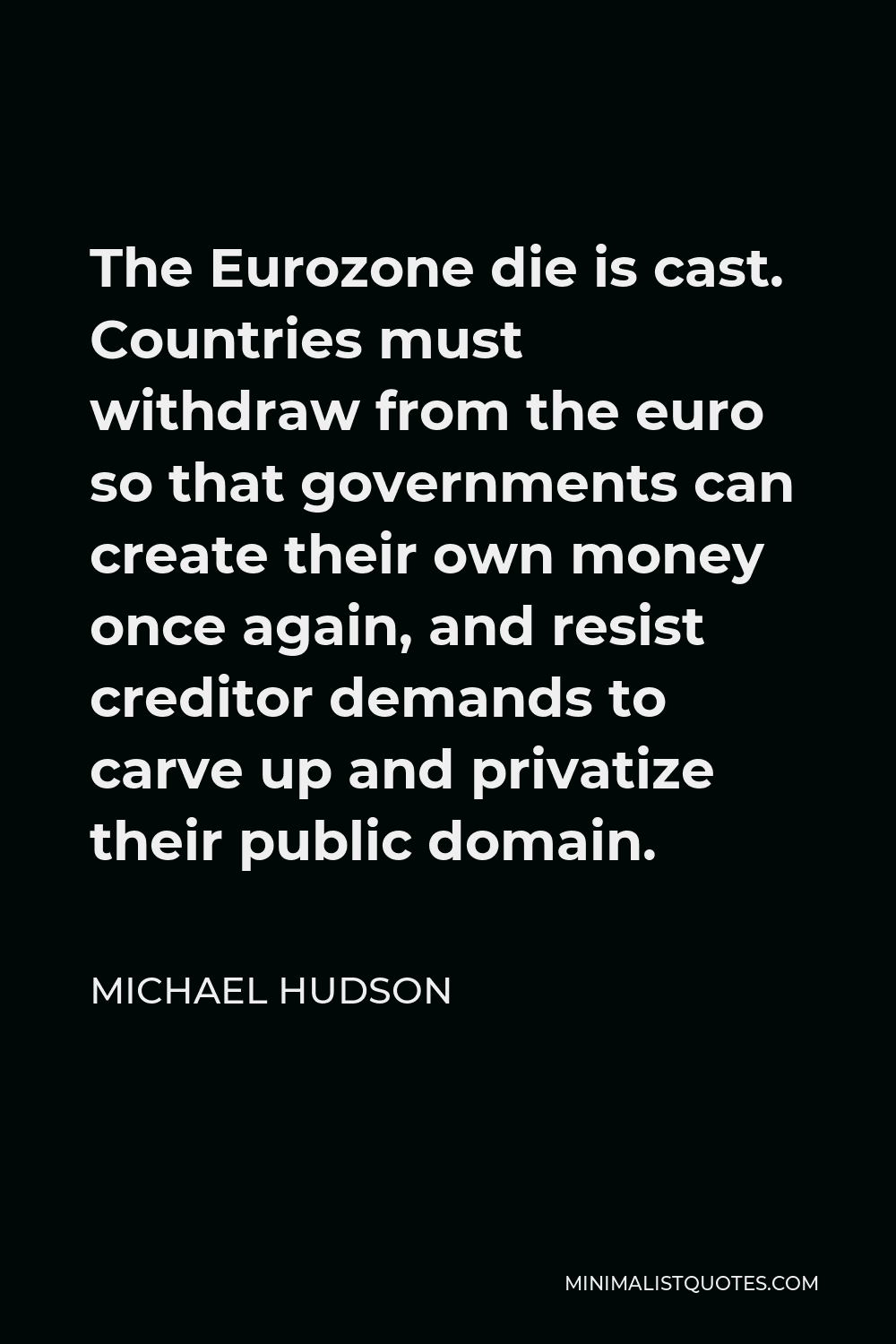
The Eurozone die is cast. Countries must withdraw from the euro so that governments can create their own money once again, and resist creditor demands to carve up and privatize their public domain.
MICHAEL HUDSON -






So we are in for years of debt deflation. That means that people have to pay so much debt service for mortgages, credit cards, student loans, bank loans and other obligations that they have less to spend on goods and services. So markets shrink.
MICHAEL HUDSON -





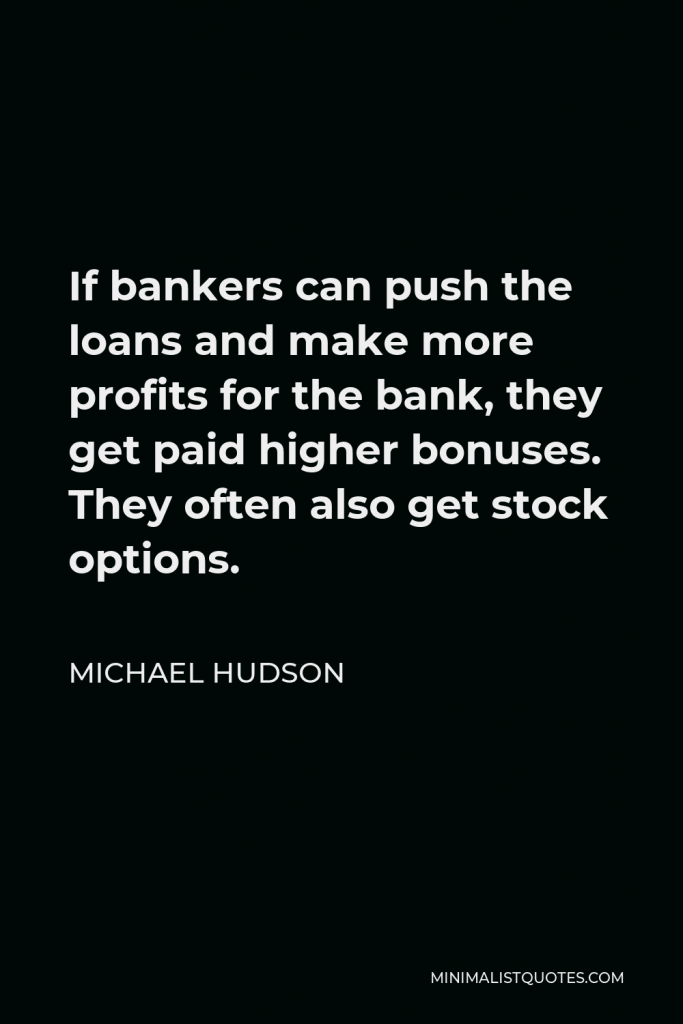

If bankers can push the loans and make more profits for the bank, they get paid higher bonuses. They often also get stock options.
MICHAEL HUDSON -





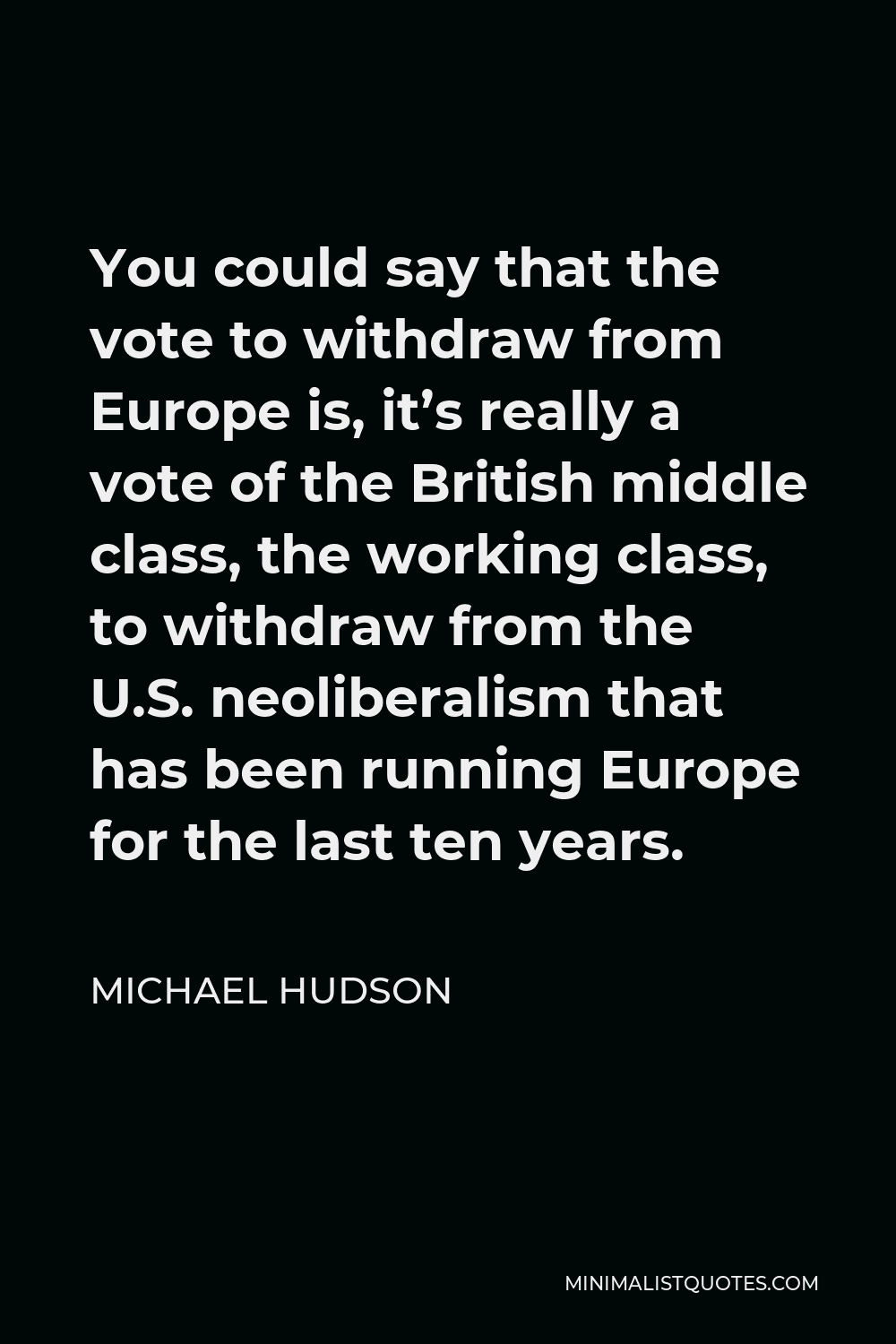
You could say that the vote to withdraw from Europe is, it’s really a vote of the British middle class, the working class, to withdraw from the U.S. neoliberalism that has been running Europe for the last ten years.
MICHAEL HUDSON -





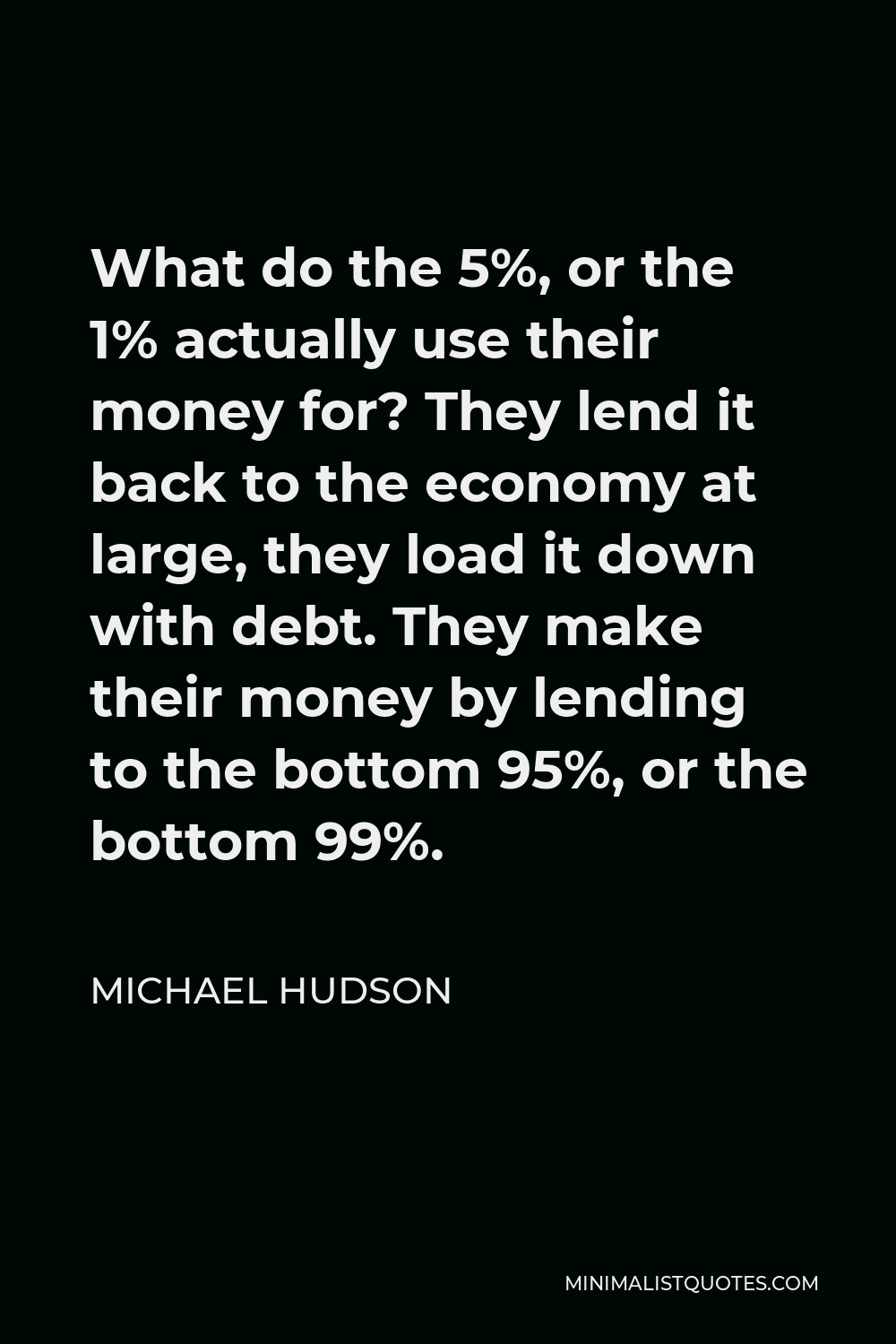
What do the 5%, or the 1% actually use their money for? They lend it back to the economy at large, they load it down with debt. They make their money by lending to the bottom 95%, or the bottom 99%.
MICHAEL HUDSON -






When you say “paying the banks,” what they really mean is paying the bank bondholders. They are basically the One Percent.
MICHAEL HUDSON -





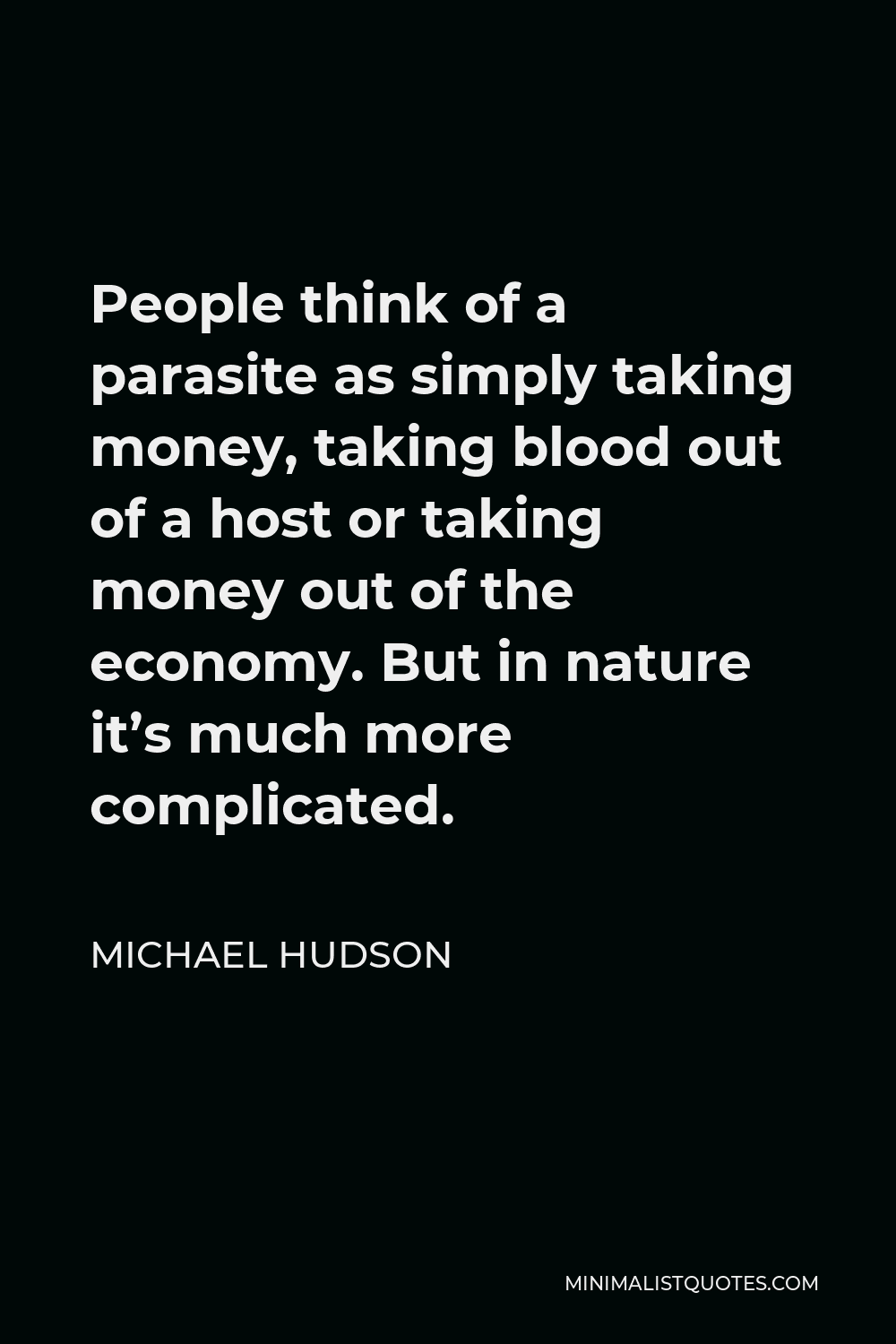
People think of a parasite as simply taking money, taking blood out of a host or taking money out of the economy. But in nature it’s much more complicated.
MICHAEL HUDSON -





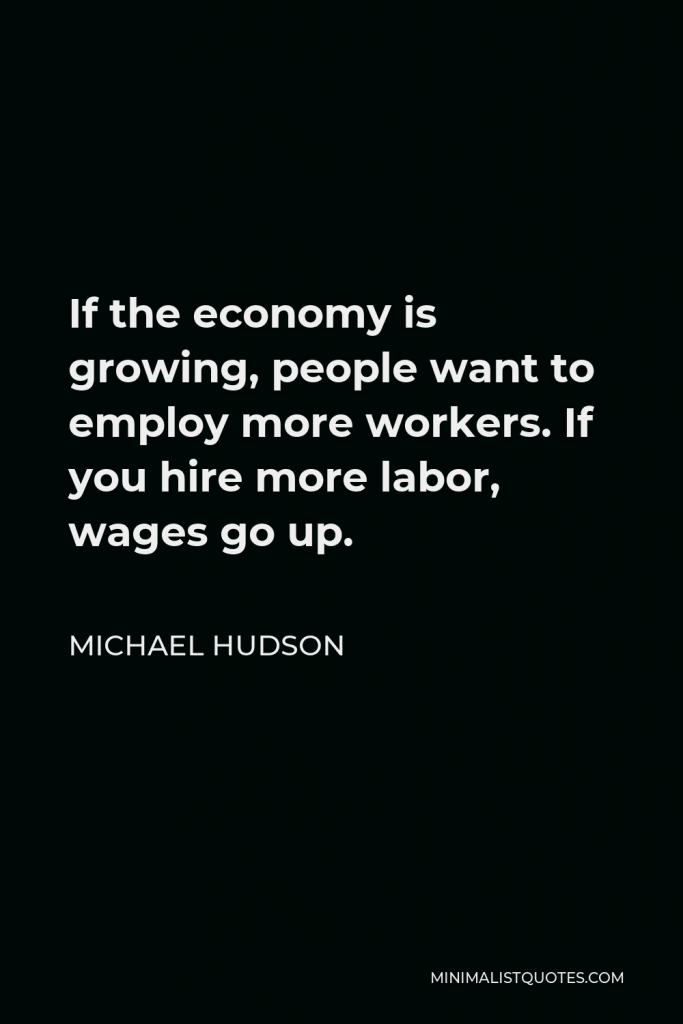

If the economy is growing, people want to employ more workers. If you hire more labor, wages go up.
MICHAEL HUDSON -





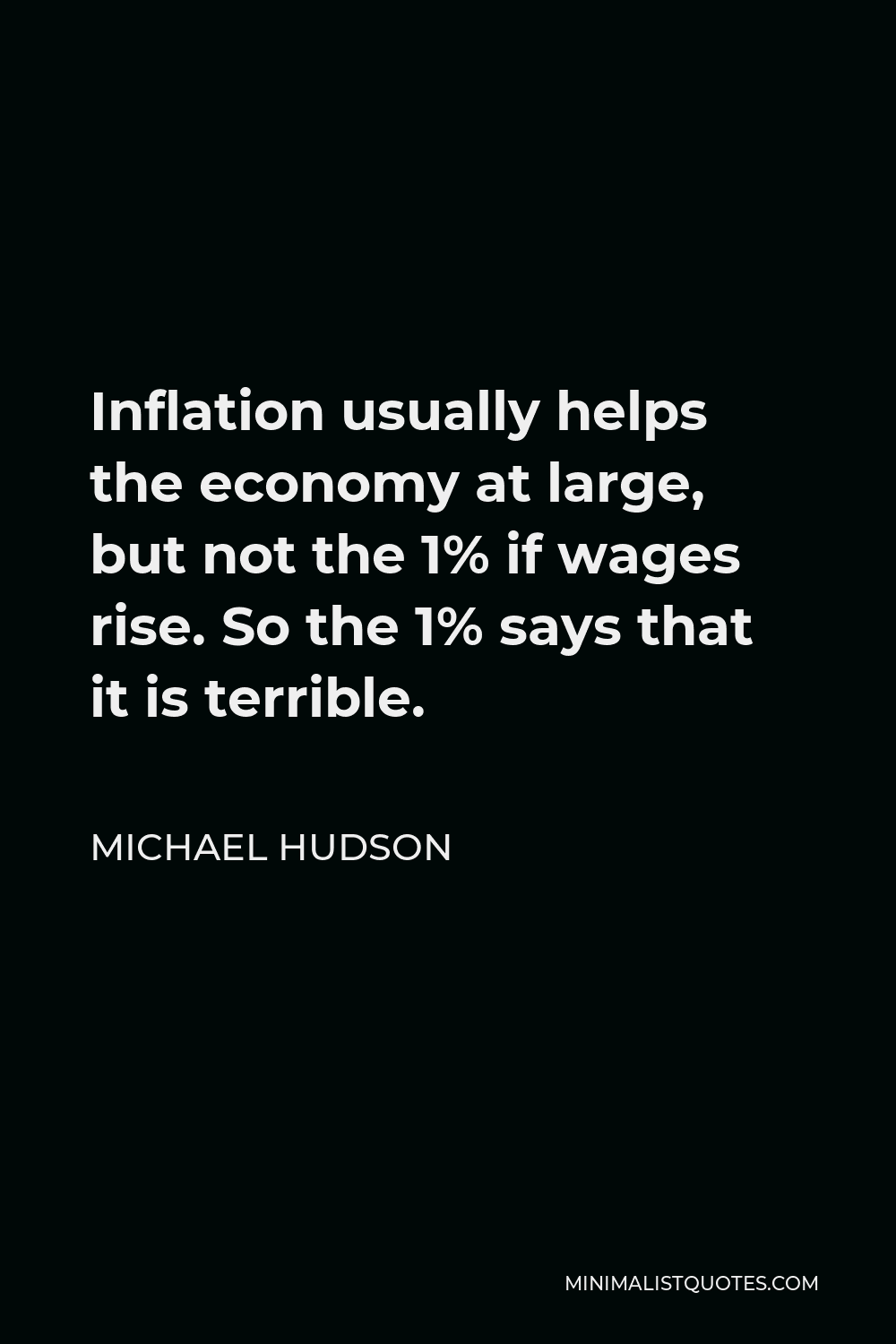
Inflation usually helps the economy at large, but not the 1% if wages rise. So the 1% says that it is terrible.
MICHAEL HUDSON

